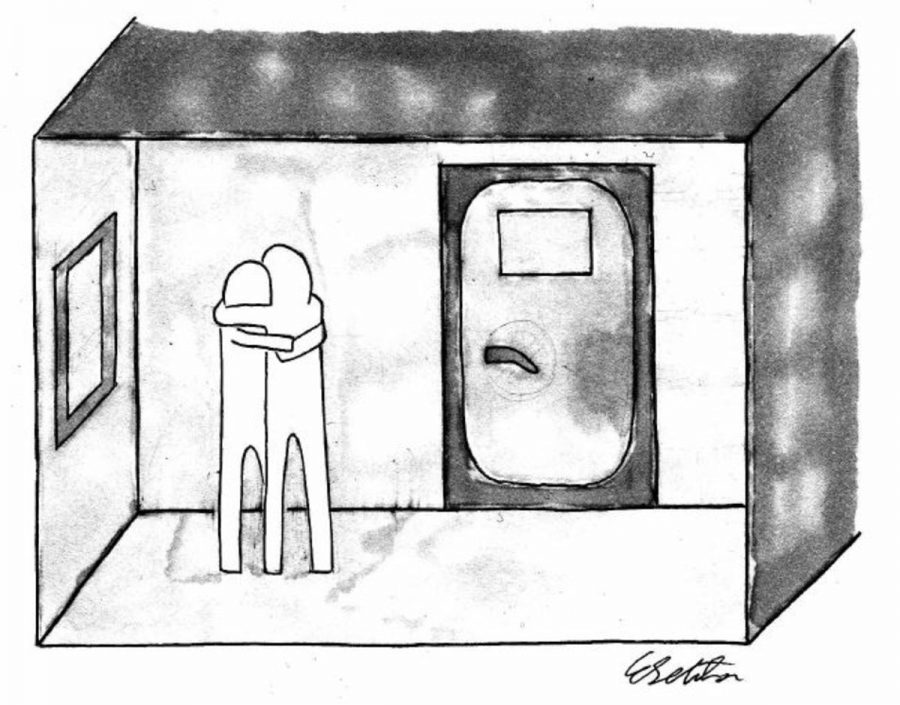Securing safe spaces in society
November 10, 2016
Home is a safe haven, free from judgment, free from the outside world, free from societal pressure.
To me, a safe space means home. It’s a place I know I can go when I have nowhere else to turn. I can unleash my thoughts, my frustrations, my anger when yet another young life is taken away from this earth.
Safe spaces were originally implemented by schools during the post-Civil Rights era after more minorities began to go to college. That original intent is still present today; safe spaces exist as a refuge for those who some in society deem different on campuses throughout a country that still struggles with oppression.
In communities all over the country, people are discussing the utility of safe spaces and their numerous effects. But all that’s happening is discussion. Communities around the country lack enough safe spaces–places for free discussion and free expression. We discuss the presence of safe spaces but we don’t discuss the important conversations that take place in safe spaces. And it’s worrying.
Neighborhoods should host safe spaces in local churches or town halls to create a sense of community among residents.
I love Bethesda because of the opportunities it gives me. Safe streets and an amazing school system. Laughter echoes in neighborhoods instead of gunshots; the jingle of an ice cream truck is more common than the blaring siren of a police car. But this safety doesn’t excuse the subtle aggressions that linger in communities across the country, including our own.
My classmates understand that saying the n-word is not okay, but some who I have talked to don’t understand the depth of oppression the word still carries with it.
There are experiences and emotions that are impossible to share with everyone. When one of my friends sees yet another black person get shot for little to no reason, they feel sad, some might be inspired to take action. When I see yet another black person get shot, I feel fear. Fear that next time, it could be a brother, a father, a sister, a mother, an uncle, a cousin, an aunt. Or me. The safe space is a place to share these emotions with people who have personally experienced the same depth of emotion.
A safe space offers a guaranteed shoulder to cry on when the world shows its uglier side. It’s not a retreat or shelter from ideas. It’s an unconditional ear, that believes, understands and supports people in dire times of need. And I cannot imagine life without one.









Time to Talk • Nov 10, 2016 at 11:17 pm
I am sensitive to the concerns surrounding a Trump Presidency, yet I would urge the author of this article and other students at this school to evaluate the situation holistically. Though some attempt to daguerreotype Donald Trump as one who has capitalized on divisions and the basest impulses of the “White American Male” ( which is a canard as he received the same number of votes as Mitt Romney in Wisconsin, Michigan and Pennsylvania; In fact, Hillary’s vote total declined by 5 million from Obama in 2012, suggesting that Trump’s success was a product of her weakness as a candidate), he is simply an organic response to the serious flaws of our elitist economic and political structure, many of which Bernie Sanders has railed against as well. When the mainstream media and “liberal” outlets label anything running counter to a creed of political correctness, the vast majority of this country is incensed. Take college . Affirmative action benefits have generously granted wealthier African Americans and Hispanic children an unfair advantage in the college admissions process, whereas middle class and lower class white representation at many of our nation’s elite university’s borders on zero percent. As millennials, we can not simply point fingers at anything that does not neatly conform with our worldview and cry foul. We have to engage it. Study it. Process it and fight back injustice productively rather than retreat from a potentially unpleasant reality. Though well-intentioned, safe spaces and the political correctness of the contemporary left will only exacerbate divides in this country, prevent discussions, and foster more of what we saw on Tuesday night.
schaffler • Nov 14, 2016 at 4:47 pm
Yes, let’s study it. Bit hard to “fight back injustice productively” without a shoulder to lean on when the going gets tough. If (and you’ve not challenged this at all!) that characterization of safe spaces is correct, then your comment misses the point entirely 🙂
yikes • Nov 18, 2016 at 10:54 am
What you seem to assume is that safe spaces mean people aren’t exposed to opposing views. A safe space is merely a place in which, for a certain period of time, minorities don’t have to deal with majority views. Take, for example, Hillel. Hillel can be considered a safe space for Jewish students, who, when in Hillel, don’t have to deal with other students harassing them about Israel. This actually became a problem at Columbia, and Hillel made the students feel safer and better about being at school regardless of their position on Israel.